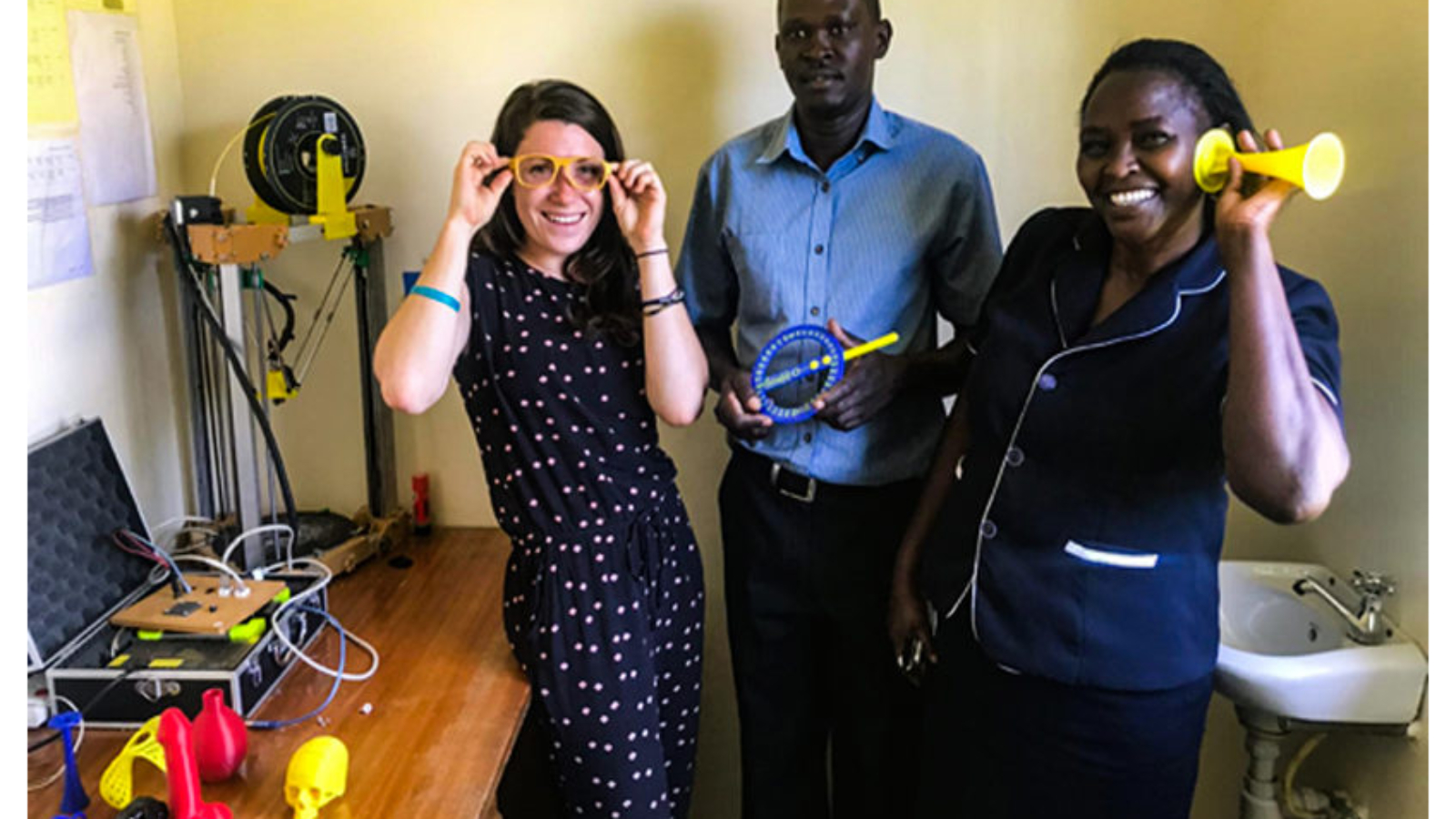Kijenzi, a humanitarian start-up from Pennsylvania State University’s College of Engineering, is aiding remote healthcare facilities in Kenya with 3D printed medical supplies.
The initial vision of Kijenzi aimed to use its portable, custom 3D printers to speedily produce health equipment such as braces, clamps and vacuum pumps at low costs. Nevertheless, as the initiative began working in the Kenyan community, the team concluded that access to the CAD design files needed to print the equipment was more limited than the hardware.
Thus, the start-up shifted from supplying 3D printers to developing a cloud-based system, enabling access to 3D printable files for hospitals and medical professionals. John K. Gershenson, co-founder of Kijenzi and director of the Penn State Humanitarian Engineering and Social Entrepreneurship (HESE) program explained:
“Our customers are health care facilities that don’t have access to the supply chains they need and over 40% don’t have the equipment needed to treat their patients. We bring the ability to locally manufacture what they need, when they need it. That is a game changer for access to treatment.”
3D printing with a purpose
Gershenson and Benjamin Savonen, a doctoral candidate in mechanical engineering, co-founded the Kijenzi venture with help from various entrepreneurial support programs at Penn State – particularly, the Penn State HESE program. This challenges students and faculty to create technology-based solutions that will positively affect those in lower-income communities using sustainable business models.
Kijenzi was further developed through its participation in the Ben Franklin Technology Center’s TechCelerator program. Gershenson added, “The TechCelerator gave us the time and feedback we needed to craft the story of Kijenzi in such a way that everyone could understand what we are doing.”
Manufacturing on Demand
Savonen identified the need for new lab equipment while teaching in Africa. This led the venture to rural areas of Kenya. 3D printing was recognized as an appropriate solution to manufacture hard-to-get items such as anatomical models, replacement parts, and occupational therapy devices – which contribute to the well-being of others.

A sustainable supply chain
In many cases, supply chains can be limited in its reach as a result of broken and obsolete machinery, as well as logistical difficulties. Kijenzi has addressed these limitations with its cloud-based system which holds approximately 400 parts in its inventory.
The 3D printed equipment has been tested and used within collaborative educational institutes as well as medical facilities. Kijenzi is now preparing to launch an initial program in Kenya this May.
Similarly, last year, Field Ready, a non-profit organization based in Illinois, addressed the logistical challenges, medical, and social needs of the Sharia Camp in Iraq with novel soap with 3D printed toys inside.
* This article is reprinted from 3D Printing Industry. If you are involved in infringement, please contact us to delete it.
Author: Tia Vialva


Leave A Comment